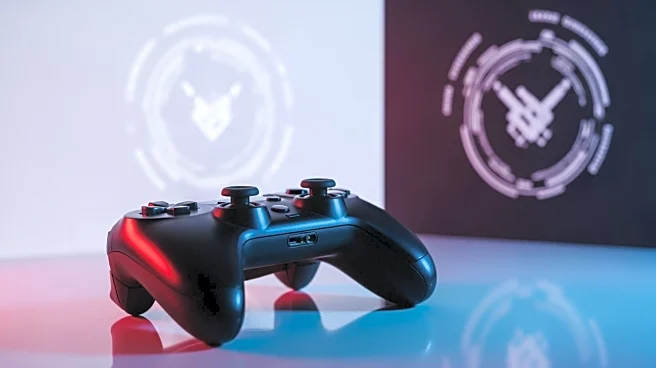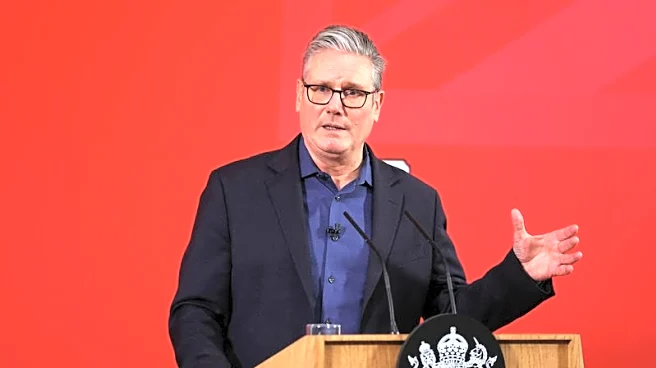What's Happening?
Rapper Soulja Boy is once again in the spotlight for attempting to sell a game console, this time under the name SouljaGame Flip. The device appears to be a rebranded version of the Retroid Pocket Flip 2. Initially priced at $436, more than double the original
$209 price on Retroid's official site, the console's price has since been reduced to $200. This move comes after it was revealed that the console is not an official collaboration with Retroid. The company has stated that Soulja Boy does not have permission to rebrand and sell their products, and the Retroid Pocket Flip 2 is patented in the U.S. by Retroid. This is not the first time Soulja Boy has been involved in such controversies, having previously sold rebranded gaming devices in 2018 and 2021.
Why It's Important?
The situation highlights ongoing issues in the gaming industry regarding intellectual property rights and unauthorized rebranding. For Retroid, this incident could impact their brand reputation and sales, especially if consumers are misled into purchasing a product under false pretenses. For Soulja Boy, this could lead to potential legal challenges, as Retroid may consider pursuing legal action to protect their patented product. The broader gaming community may view this as a cautionary tale about the importance of verifying the authenticity of gaming products, especially in a market that is seeing a surge in retro gaming devices.
What's Next?
It remains to be seen whether Retroid will take legal action against Soulja Boy for the unauthorized rebranding of their product. The outcome of this situation could set a precedent for how similar cases are handled in the future. Additionally, consumer reactions and potential backlash could influence Soulja Boy's future endeavors in the gaming industry. Stakeholders in the gaming market will likely be watching closely to see how this situation unfolds and what measures Retroid will take to protect their intellectual property.
Beyond the Headlines
This incident raises questions about the ethical implications of rebranding and selling products without proper authorization. It also highlights the challenges smaller companies face in protecting their innovations against unauthorized use by more prominent figures. The case underscores the need for clear legal frameworks and enforcement mechanisms to safeguard intellectual property rights in the rapidly evolving tech and gaming industries.

















